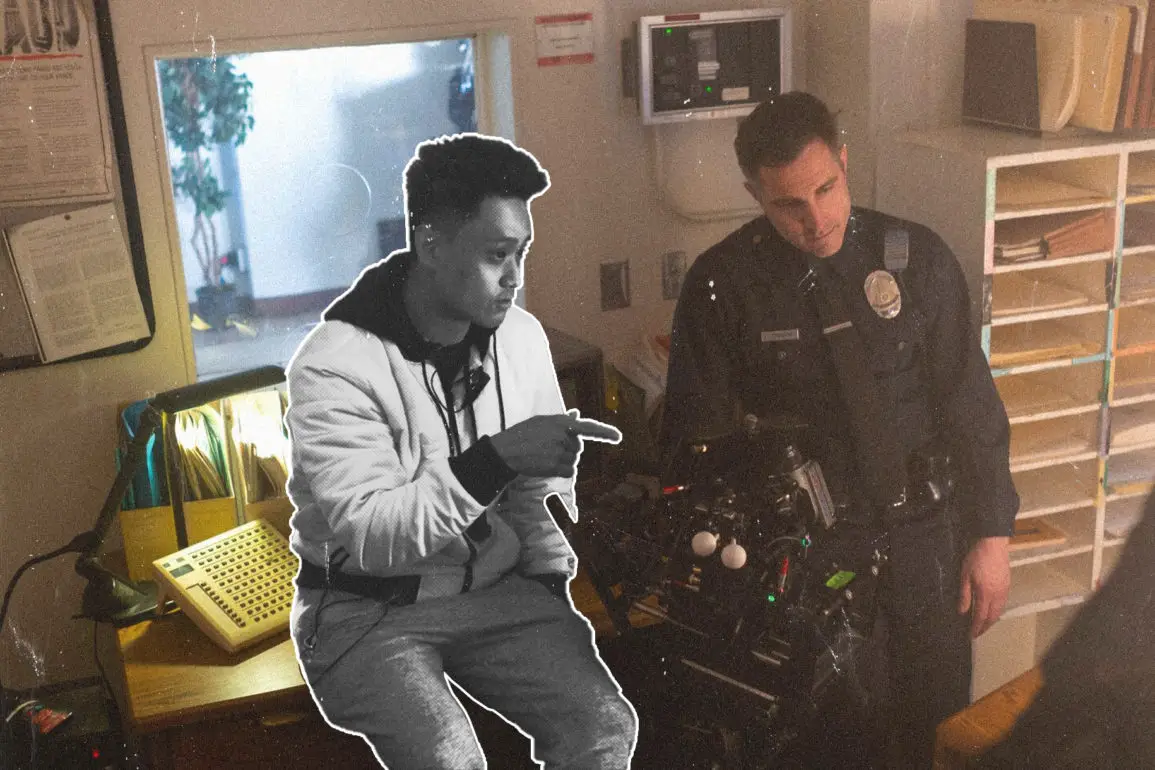What were the monumental life lessons, mistakes, and things you’ve learned throughout your filmmaking career that you would like to share to aspiring or emerging filmmakers and/or creatives in general?
In my early years of filmmaking, I wasn’t fully versed in the power of movie magic so, from time to time, I could become fixated on certain creative choices and completely oblivious of others’ opinions. As I developed into a more experienced filmmaker, I came to my senses that there are always alternate approaches to take without tempering the picture quality and to nurture a more efficient work environment on set. I’ve learned how to welcome feedback from my collaborators while holding onto my own standards and deliver to my collaborators feedback in a more diplomatic manner without hurting people. Feedback, when given with a positive intent and in a decorous way, can yield phenomenal results, whereas giving feedback in an attempt to get frustration off your chest or further your personal agenda dampens morale. I encourage emerging filmmakers to embrace suggestions, filter out the undesirable ones and distill the advantageous ones into something that serves the best interest of the project.
What do you think the future of filmmaking would look like? What kind of stories do you think will emerge and capture the attention of producers and executives?
The entertainment industry is an ever-evolving business, and it has always been protean in the past few decades. I think the future of filmmaking will largely be determined by data and algorithms in tandem with the use of Google Trends. Content that makes use of existing intellectual properties or that has an established fan base will continue booming while the original IPs developed by newcomers may scramble to pin down their target audience. As such, it’s more of a question of whether filmmakers are able to provide cogent data-driven statistics to present indicatives of audiences’ fondness and fascination with the concept they pitch to executives than what kind of stories executives are more in favor of. At the end of the day, investors are looking to fulfill selected creators’ vision at the prospect of gaining profits from each of the projects they finance, so it’s crucial to coalesce artistic choices into commercial elements in order to make a best shot.
What’s your advice to aspiring filmmakers who want to break into the entertainment industry?
I would say to those eager and expectant first-year students who aspire to become producers and directors, get yourself some hands-on experience and get out there and network with your peers by working on film sets throughout your degree studies. Keep an eye out for talented, diligent, and detail-oriented individuals who have established track records in your program; you never know, they might be partners in your next production. No, you’re most likely not going to work with Leonardo DiCaprio, James Cameron, J.J. Abrams, or Roger Deakins in the next ten years, but you’re probably going to work with the hottest industry newcomers in the next four years. You may as well start building your network from day one.
The best advice I can give to rising juniors/seniors/grad students who have plans to make documentaries/films/animations, treat it like it’s the high point of your career; don’t just give it a perfunctory effort for a class grade. Your work sums up what you’ve learned in film school. It also defines your reputation and is what industry professionals will be looking at upon or after your graduation. I had the opportunity to meet with some of the executives at STX and Warner Bros. over the last year. They will always ask for access to your work and the project you’re developing if they express an interest in further connecting with you. Bear in mind that the movie you create as part of your thesis is really a calling card to the next project or a job in the post-graduation world. Everything could be more arduous and the expenses would be double, sometimes even triple, without students’ privilege. That being said, with abundant program resources and technologies available on the market, I strongly recommend putting in your maximum effort and taking advantage of everything offered by the programs, online materials, and faculty resources – after all, they are more than happy to further young filmmakers’ futures.
What kind of legacy do you want to leave behind as a filmmaker?
I’ve always been dedicated to incubating stories that benefit society. This ideology won’t change, and my monumental devotion to telling untold true stories that tackle social issues, human histories, and people’s impactful lives will be carried over to all of my future work. I firmly believe that a big chunk of the critically acclaimed films that ring true with a broad spectrum of audiences largely stem from stories inspired by real-life experiences, so I hope to continuingly explore those emotionally-charged and thought-provoking themes from which my audiences are able to take away something that plays into their lives.
In the long run, I am very keen to tap into the science-fiction genre and create an astronomical, space-traveling anthology, something that I always find myself mesmerized by and that I set a goal for a long time ago. I am particularly enthralled by the concept of civilians from other countries, after thousands of years of civilization and evolution, being capable of building their own spaceship and travelling to another habitable planet in which human civilization and infrastructure have already been long established by our progenitors, resembling how people travel to other countries nowadays. Ideally, I wish I could create a show or movie franchise that is widely accepted and well received by a worldwide audience. But that’s a long way down the road and I need to take one step at a time and build up my skillsets and networks.
Do you have other upcoming projects you want to share with us?
I am currently developing a feature drama on how the pandemic and the current crisis have impacted the lives of people from different countries, and I am about to get into the production phase for an action movie that explores the story of an orphaned Black/Native American girl who is trained as a Yakuza assassin and battles sex-trafficking Triads and government conspirators in her mission for vengeance. This is likely to be my first international project, as we are planning to film in five places including mainland US, Japan, Hongkong, South Africa, and Hawaii.




